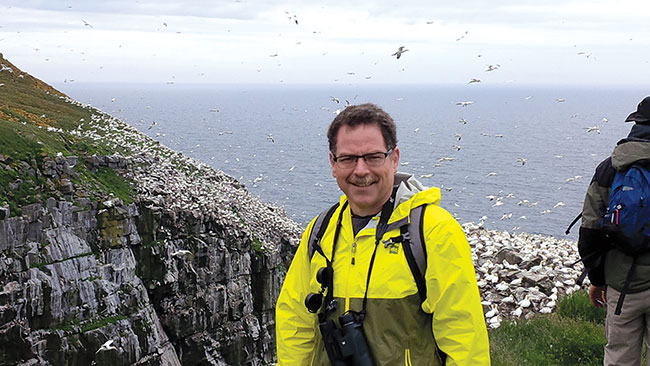
Measuring fish well-being
November 20, 2019
By Ruby Gonzalez
 A wellbeing approach to health management is a chance for stakeholders to develop a shared vision of what success looks like in health management, says Dr Craig Stephen
A wellbeing approach to health management is a chance for stakeholders to develop a shared vision of what success looks like in health management, says Dr Craig Stephen What does success look like in fish health management? The answer to the question varies depending on whom you ask and, in aquaculture, competing camps argue over whose science is right.
A tool to help assess the wellbeing of BC Atlantic salmon farming has been developed by Canadian researchers to reduce that conflict and hopefully help bolster the farmed salmon industry’s social license to operate.
Dr. Craig Stephen of the University of Saskatchewan and Joy Wade of Fundy Aqua Services have drafted an index of well-being based on agro-ecosystem health and socio-ecological health principles.
Health research is currently focused on pathogens and parasites as opposed to a socio-ecological approach to health management. Stephen said a wellbeing approach provides an opportunity for different stakeholders to develop a shared vision of what success looks like in health management and, therefore, have clarity of what health programs aim to achieve other than disease control.
“To date, much of the fish health issues in aquaculture have devolved into competing camps arguing over whose science is right. A wellbeing approach requires negotiation and collaboration to set a common agenda to make incremental improvements on situations and outcomes,”
Stephen said.
The researchers acknowledged that adoption of a wellbeing approach represents a paradigm shift; thus it will take time and will be a collaborative process. The culture of conflict in much of aquaculture will make it difficult to adopt this approach but past experiences in other sectors show that it can work with the support of people adept at community-based approaches, they said.
It will require “one or two key players willing to take a lead in supporting this evolution,” Stephen said. “This situation is similar to where terrestrial agriculture was 30-40 years ago, when they transitioned from diseases as a focus to herd health as an emphasis.”
Stephen said a trial of the wellbeing index is needed to determine feasibility, applicability and cost of the implementation. They have yet to attract the necessary funding to support it.





